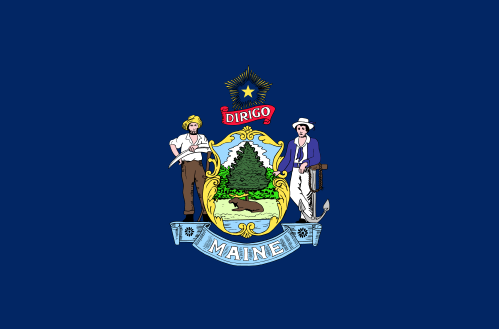Maine
Maine : I Lead

Maine is a state located in the northeastern region of the United States. It is known for its rugged coastline, picturesque small towns, and vast forests. The state is bordered by New Hampshire to the west, the Atlantic Ocean to the east, and the Canadian provinces of Quebec and New Brunswick to the north.
Maine is the 12th smallest state in terms of land area, but it is the 39th most populous, with a population of approximately 1.3 million people. The capital of Maine is Augusta, and the largest city is Portland.
The state is known for its abundant natural beauty, with miles of coastline, rocky beaches, and lighthouses dotting the landscape. The state is also home to Acadia National Park, which is located on the coast and is known for its hiking trails, stunning views, and wildlife.
Maine is also a major producer of seafood, with lobster being the state’s most well-known export. In addition, the state is home to many small farms that produce a variety of crops, including potatoes, blueberries, and apples.
Despite its small size, Maine has a rich history and culture. The state was originally settled by the French in the early 1600s, and it has a strong French-Canadian influence. The state is also home to a number of Native American tribes, including the Penobscot, Passamaquoddy, and Maliseet.
Racism exists in Maine, just as it exists in every other state in the United States. However, the history and current experience of racism in Maine may differ from that of other states.
Maine has a long history of Native American habitation, with the Wabanaki Confederacy comprising the Abenaki, Passamaquoddy, Penobscot, Maliseet, and Micmac tribes. These tribes have faced significant discrimination and oppression, including forced removal from their lands, attempts at cultural assimilation, and violence.
In the 19th and early 20th centuries, Maine was home to a small but significant population of African Americans, many of whom worked in the state’s industries, such as shipbuilding and textiles. However, like in many other parts of the country, African Americans in Maine faced segregation and discrimination, including being denied access to schools, housing, and other public facilities.
Today, racism in Maine continues to be a significant issue, particularly for people of color and indigenous people. According to data from the U.S. Census Bureau, people of color make up a small percentage of Maine’s population, and they are more likely to experience poverty and other forms of social and economic disadvantage. In addition, hate crimes and other incidents of racial violence and discrimination have been reported in the state. Racism continues to be persistent problem throughout the state.
SUNDOWN TOWNS IN MAINE
Sundown town, in U.S. history, a town that excluded nonwhite people—most frequently African Americans—from remaining in town after sunset.
Here is a current list of sundown towns in Maine. This list has been created by Tougaloo College in Tougaloo, MS. This list is a work in progress. Some cities have been confirmed as sundown towns and some are listed for other or similar reasons.
Biddeford
Brewer
Fairfield
General
Malaga Island
Milo
Orono
Presque Isle
Westbrook













You must be logged in to post a comment Login